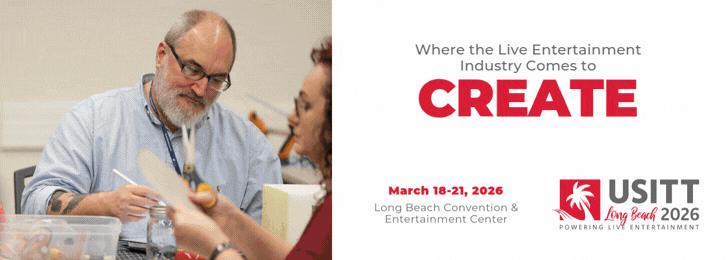By Tim Adams
The rise of AI has been nothing short of meteoric, to be sure. However, there are serious concerns that need to be considered before starting to implement this myriad of technology.
I intend to dive into several aspects of the concerns myself and many others have, and those are much more than just copyright infringement, but the very real ethical and moralistic lines that we should be abiding in.
The world we live in today is what I call “post-Christianity.” We seem to be moving past the need for a God, or Heavenly Father. Look around and we see people living the life they want, regardless of consequences and our society is allowing them to do so.
We only need to look at the rampant crime that has spread across this country since the pandemic, the blatant invasion and attacks on sovereign countries without international intervention and the epidemics of famine, disease, and terror spreading around the world.
This attitude of do what I want when I want has also started permeating our churches, as well. Regardless of your church size, denomination, or location, I am confident that we have all had requests come from leadership that asked for the seemingly impossible. Because church tech tends to draw people pleasers, we generally have a bad habit of not saying, “No.”
Just Because You Can…
So, we research ways to do what is being asked instead of stopping to ask the question of whether we should. Just because we can do something doesn’t mean we should. AI has made this even easier to achieve because with a few mouse clicks and usually a few bucks for a subscription, we can have a tool in our hands that allows us to create heretofore un-achievable things.
However, this raises a number of issues. The most obvious is the copyright concerns. AI relies on a “data set” to function and “learn.” This data set often includes access to vast libraries of information and imagery; I remember one AI was allowed to connect to the internet last year, which creates an even larger issue. AI is incapable of “original creation;” rather, it relies on specific and skilled input of queries in order to fuse together pieces of data (or imagery) to output something that might be what you’re looking for, be it a book, piece of code, a screen play, or an image or video.
The issues arise in where it is sourcing images to “create” what you’re asking it to create. We all (should) know that simply doing a Google image search and saving images you find there is technically illegal, even for churches. If we all remember the FBI warning slate that preceded films when we had VHS and DVDs, the warning was quite specific about “public exhibition, with or without monetary gain.” Too many churches focus on the “we don’t make money” argument, yet the FBI warning makes it clear that making money from the content is not the issue – it’s the unauthorized use. Period.
So if we aren’t allowed to use copyrighted media in our services, what makes it suddenly ok for us to use media created by AI for that purpose? We either stand on obeying the law, or we don’t. It’s one thing if a law crosses the line into our core ideology and violates that, such as banning Bibles. However, the law of the land is quite clear on copyright protections for those that create media. Yet churches are some of the worst violators of that law.
Ongoing litigation has shown that the use of AI has already led to loss of profits for a major newspaper.
Let’s say, for example, you have a painter who has invested tens of thousands of dollars in higher education, along with thousands of hours of time and effort, into creating a unique style and interpretation of the world around them. Normally, there are only a small number of ways an artist such as this can make a living and that revolves around selling their paintings, either through private sales, getting a gallery exhibition and/or taking commissions.
Now let’s say someone wishes to have one of this artist’s paintings but can’t afford the often-high ticket price for one, but they can have an AI generate a print for them using that artist’s style and technique. One might argue the painter was never going to make a sale to this person anyway, so there is no damage or lost revenue. However, the dangerous part of that argument is that it completely ignores the time, effort, and money this person invested into developing their own style, only to have a piece of software analyze their own works and “learn” how to apply their hard-earned style and techniques to any image in seconds. It’s entirely unfair. You might also argue that artists steal from each other all the time, be it technique, imagery, style, etc. However, the difference is that the replication of a style stills takes time to master and effort whereas software does it in seconds; there is no creative process and it’s tantamount to theft.
Privacy Issues
Let’s also think about privacy issues; because AI has to pull from existing content, the reality is that faces generated by AI are going to replicate existing people. Going back to the law of the land, you are allowed to capture people’s faces/likenesses if they are in a public space. However, AI doesn’t differentiate between photos taken in public or private-it doesn’t care. Therefore, there is a real danger that an individual could sue an AI and/or user of AI for violation of privacy. We have model releases for a reason, ESPECIALLY for minors, and this is one of those ethical and moral areas that we need to be very, very careful about. We live in a very litigious society and while governments around the world are looking at new regulations to implement specifically for AI use, we should not solely rely on those entities to provide not only comprehensive laws, but also the enforcement of those laws.
Let’s also talk about trust: there are AI tools available that can take a video message delivered in one language and convert that into being delivered in a different language with natural mouth movement, etc. While this can be useful in the short term, let’s think about the long-term effects. When you do this from English to Spanish, let’s say, you imply that the speaker is bi-lingual and can easily converse in Spanish. However, when you meet the speaker and realize they cannot speak Spanish, you create distrust in that constituency; distrust in the speaker (usually a leader of some kind), distrust in the organization at large, and distrust in you, the person who created the video to begin with.
Deepfake Technology
Of course, this leads to my final area of concern-the ability for AI to manipulate existing images, voices, and faces. We should all be familiar with deepfake technology, which has been around for a few years. It can be used for humorous applications, such as when doing impersonations of celebrities or the like, but there is a very dark side to this capability, as well. Imagine a tool like this being used to make it appear like you have said or done something you never did. Or subtly changing a statement you made into something terrible. Manipulating footage and images is an extremely dangerous standard to set, regardless of whether your intentions are good. Remember, “the road to hell is paved with good intentions.”
As members of the Kingdom, we are called to a higher standard, and we should be leading the way in adhering to a higher moral and ethical standard, rather than stooping to the borderline illegal practices that AI encourages.
To be clear, there are powerful AI tools that I use that in no way violate copyright or hold privacy issues, such as generating captions and subtitles for videos I create. This is a great way of saving a lot of time and effort with a morally and ethically clear use case.
I can’t tell you what to do, but I hope that this article has at least stimulated some thoughtful reflection on the use of AI and the very careful consideration and deep discussions that should be had prior to engaging with AI tools.
I will close by also mentioning that I believe AI encourages us to kick God to the curb in the creative process because we are not seeking His inspiration, but rather using software to replicate what should be coming from our Father. Let’s keep God in our creative process and let Him be our moral and ethical guide in this fast-paced and ever-changing world of AI and its use.

Tim Adams spent over 20 years volunteering in church technical ministry and now focuses on helping small churches achieve technical excellence through equipment upgrades, training, sharing best practices and teaching leadership how to cast God-sized vision.




